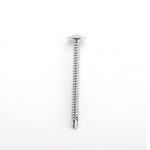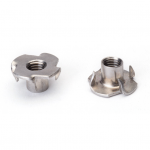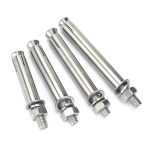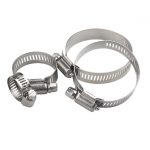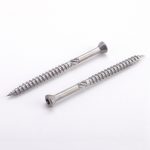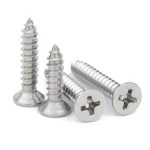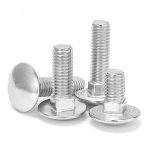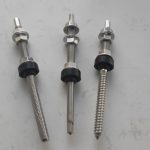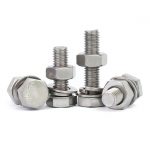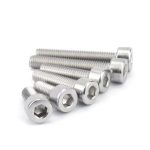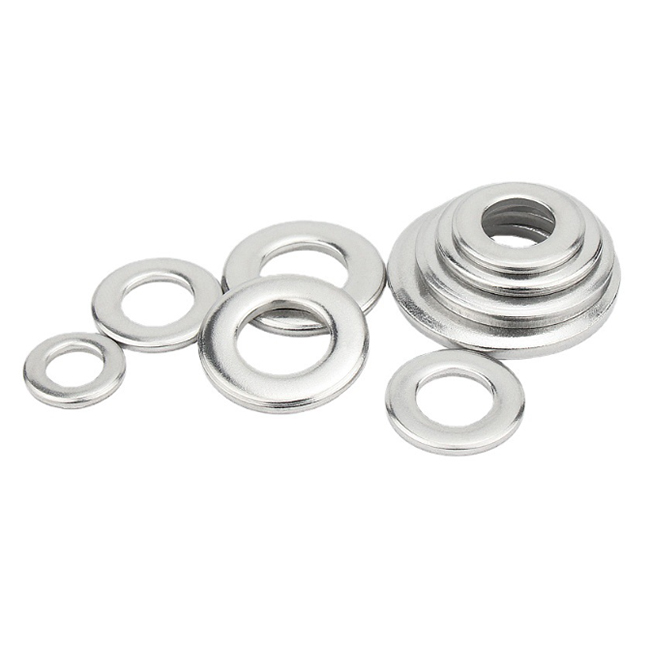
Standard: DIN125 /DIN9021/DIN440/ASME B18.22.1
GRADE: A2-70,A4-80
Material: stainless steel A2-304,A4-316,SMO254,201,202,
Size:from #6 to 2-1/2", from M3 to M72
Surface finish:Plain or Customized
Packing: cartons with furmigated pallets
Supply ability: 50tons per month
Assembly: normally with bolt or hex flange bolt
Stainless steel flat washers are an essential component of many mechanical systems. These small, circular metal disks are designed to distribute the load of a threaded fastener, such as a bolt or screw, over a wider area to prevent damage to the material being fastened. SS flat washers are a popular choice for many applications due to their corrosion resistance, durability, and aesthetic appeal. In this article, we will explore the benefits and uses of SS flat washers, as well as provide tips for selecting and installing them in your next project.
What is an SS Flat Washer?
A stainless steel flat washer is a thin, circular metal disk with a hole in the center. These washers are typically used in conjunction with threaded fasteners to help distribute the load of the fastener over a larger area. Flat washers are available in a range of sizes and thicknesses, and can be manufactured from a variety of materials. However, SS flat washers are often the preferred choice due to their strength, durability, and resistance to corrosion.
Advantages of SS Flat Washers
SS flat washers offer a number of advantages over other types of washers. Some of the key benefits include:
Corrosion Resistance
Stainless steel is well-known for its corrosion resistance properties, making SS flat washers an excellent choice for use in harsh environments, such as marine or outdoor applications. The chromium content of SS washers forms a protective layer that resists corrosion, rust, and stains, ensuring the longevity of the washer and the overall system.
Durability
SS flat washers are made from high-quality stainless steel material that is strong, durable, and able to withstand high levels of pressure and stress. This makes them ideal for use in applications that require high levels of reliability and long service life.
Aesthetic Appeal
In addition to their functional benefits, SS flat washers also have an attractive appearance, making them a popular choice for use in visible applications. The sleek, shiny surface of stainless steel provides a polished look that enhances the overall aesthetic of the system.
Common Uses of SS Flat Washers
SS flat washers are used in a wide range of applications across many different industries. Some common uses include:
Automotive Industry
SS flat washers are commonly used in the automotive industry for various applications, including engine components, suspension systems, and brake assemblies. The corrosion resistance and durability of SS washers make them ideal for use in harsh automotive environments.
Construction Industry
The construction industry also frequently uses SS flat washers for applications such as HVAC systems, plumbing, and electrical installations. The strength and reliability of SS washers make them a popular choice for use in these critical building systems.
Marine Industry
Due to their corrosion resistance properties, SS flat washers are often used in marine applications, such as boat building, dock construction, and offshore drilling rigs. The ability of SS washers to withstand the harsh saltwater environment makes them an essential component in these industries.
Selecting and Installing SS Flat Washers
When selecting SS flat washers for your application, it is important to consider several factors, including the size, thickness, and material of the washer. It is also important to select a washer with the correct inner diameter to fit the size of the fastener being used.
During installation, it is important to ensure that the washer is properly centered on the fastener and that it is tightened to the appropriate torque value. This will help to ensure that the washer is properly distributing the load of the fastener and providing the necessary support to prevent damage to the material being fastened.
Conclusion
SS flat washers are an essential component in many mechanical systems, providing critical support and load distribution. With their excellent corrosion resistance, durability, and aesthetic appeal, they are a popular choice for use in a wide range of applications across many different industries.
When selecting and installing SS flat washers, it is important to consider the size, thickness, and material of the washer, as well as the inner diameter and torque value. Proper installation and maintenance will help to ensure that the washer is functioning correctly and providing the necessary support to prevent damage to the system.
In summary, SS flat washers are an essential component in many mechanical systems due to their corrosion resistance, durability, and aesthetic appeal. They are commonly used in industries such as automotive, construction, and marine, and are available in a range of sizes and thicknesses. When selecting and installing SS flat washers, it is important to consider several factors to ensure optimal performance and longevity.
FAQs
What is the difference between a flat washer and a lock washer?
A flat washer is designed to distribute the load of a threaded fastener, while a lock washer is designed to prevent the fastener from loosening due to vibration or rotation.
What is the inner diameter of an SS flat washer?
The inner diameter of an SS flat washer varies depending on the size of the fastener being used.
Can SS flat washers be used in high-temperature applications?
Yes, SS flat washers can be used in high-temperature applications, depending on the grade of stainless steel being used.
How do I know if I need an SS flat washer for my application?
An SS flat washer may be necessary if the fastener being used could cause damage to the material being fastened or if additional support is needed to distribute the load of the fastener.
Can I reuse an SS flat washer?
It is generally not recommended to reuse an SS flat washer, as it may have become damaged or deformed during the previous use, compromising its performance. It is recommended to use a new washer for each installation.

